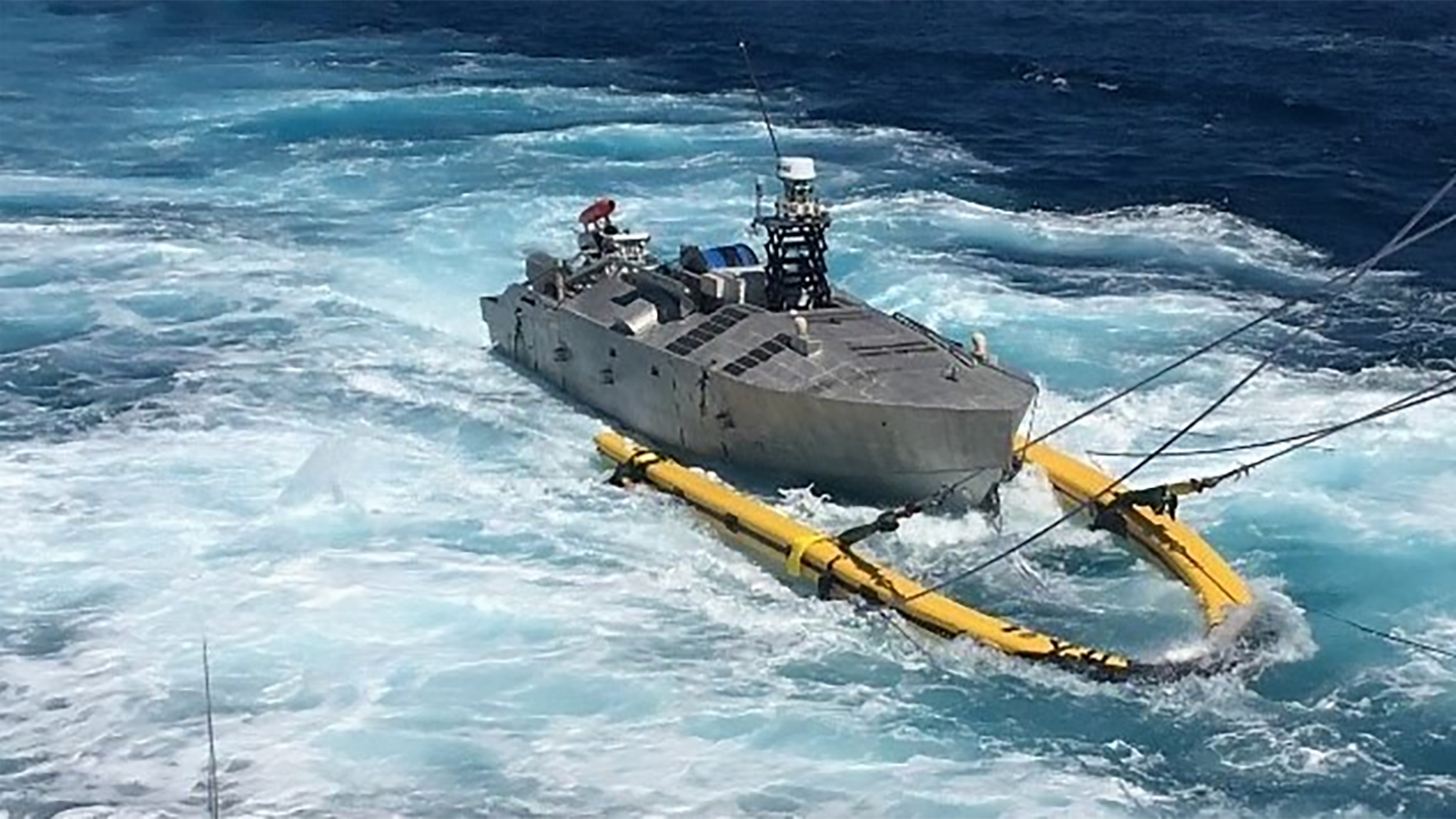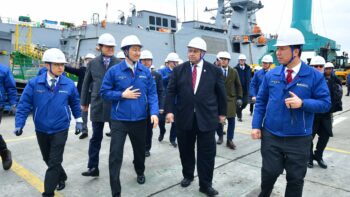
The Mine Countermeasures Unmanned Surface Vehicle is recovered onboard the Manchester (LCS 14) during a testing activity. (Photo courtesy of US Navy)
WASHINGTON — The Government Accountability Office has denied Textron Systems’ legal challenge to the Navy’s $122 million contract award to Bollinger Shipyards for the production of a new unmanned surface vehicle.
The contract in question is for the Mine Countermeasures Unmanned Surface Vehicle, a critical component to the technology package the Navy is developing to detect and destroy undersea mines. Textron Systems played an integral role in the research and development of that vehicle through its Common Unmanned Surface Vehicle.
Despite the company’s background in the program, Bollinger Shipyards won the production contract awarded in April, and Textron subsequently protested the win through the Government Accountability Office’s bid protest process.
A bid protest is one mechanism industry can use if it believes the government awarded a contract inappropriately. They are notoriously difficult to win and the government is not legally bound to respect the watchdog’s opinions, but federal agencies often will change course if GAO sustains an industry challenge.
Textron alleged the Navy “misevaluated Bollinger’s proposal,” made “improper and inadequate” cost evaluations and argued the service’s decision was “unreasonable because it was based on flawed underlying evaluations,” according to GAO’s decision, which the watchdog published on Aug. 9.
A Textron spokeswoman had not responded to a request for comment from Breaking Defense by time of publication.
The watchdog found Textron’s arguments about the technical evaluation boiled down to a disagreement of how the Navy and the company interpreted the solicitation’s language.
“Essentially, Textron has argued that Bollinger’s proposal could have been more detailed or based on more comparable experience. The agency, however, did not ignore this possibility, as the protester suggests,” GAO writes, citing the Navy’s evaluation of Textron’s technical factors as “outstanding” while giving Bollinger an “acceptable” rating.
“More to the point, Textron has not established that Bollinger did not meet the requirements defined by the solicitation, in a manner consistent with the agency’s qualitative evaluation and adjectival rating of acceptable,” the watchdog’s decision continues.
Textron also argued that the Navy’s analysis of Bollinger’s proposed labor rates was inadequate because it didn’t compare those rates to Textron’s. (GAO redacted the associated dollar amounts from its publicly available decision.)
“Textron insists that the agency was obligated to dive deeper in a comparison of the offeror’s proposals, calculating and analyzing each offeror’s split between self-performed hours and subcontracted hours and reviewing each category for differences between the offerors,” according to the watchdog.
GAO denied this allegation on the grounds that a government agency does not have to achieve “scientific certainty” when evaluating projected costs, but rather only needs to be confident the information is reasonable within the context it is provided. In other words, if Bollinger’s cost proposals made sense in the context of that company’s proposal, then the Navy has no obligation to compare every dollar per hour against Textron’s proposal.
The company’s last allegation related to the selection being based on “flawed underlying assumptions” was also summarily dismissed because it largely depended on GAO agreeing with at least some of the other complaints Textron filed.
SECNAV floats idea of co-production with foreign shipyards
Del Toro has repeatedly praised shipbuilders in South Korea and Japan for their abilities to keep construction efforts on time.


























